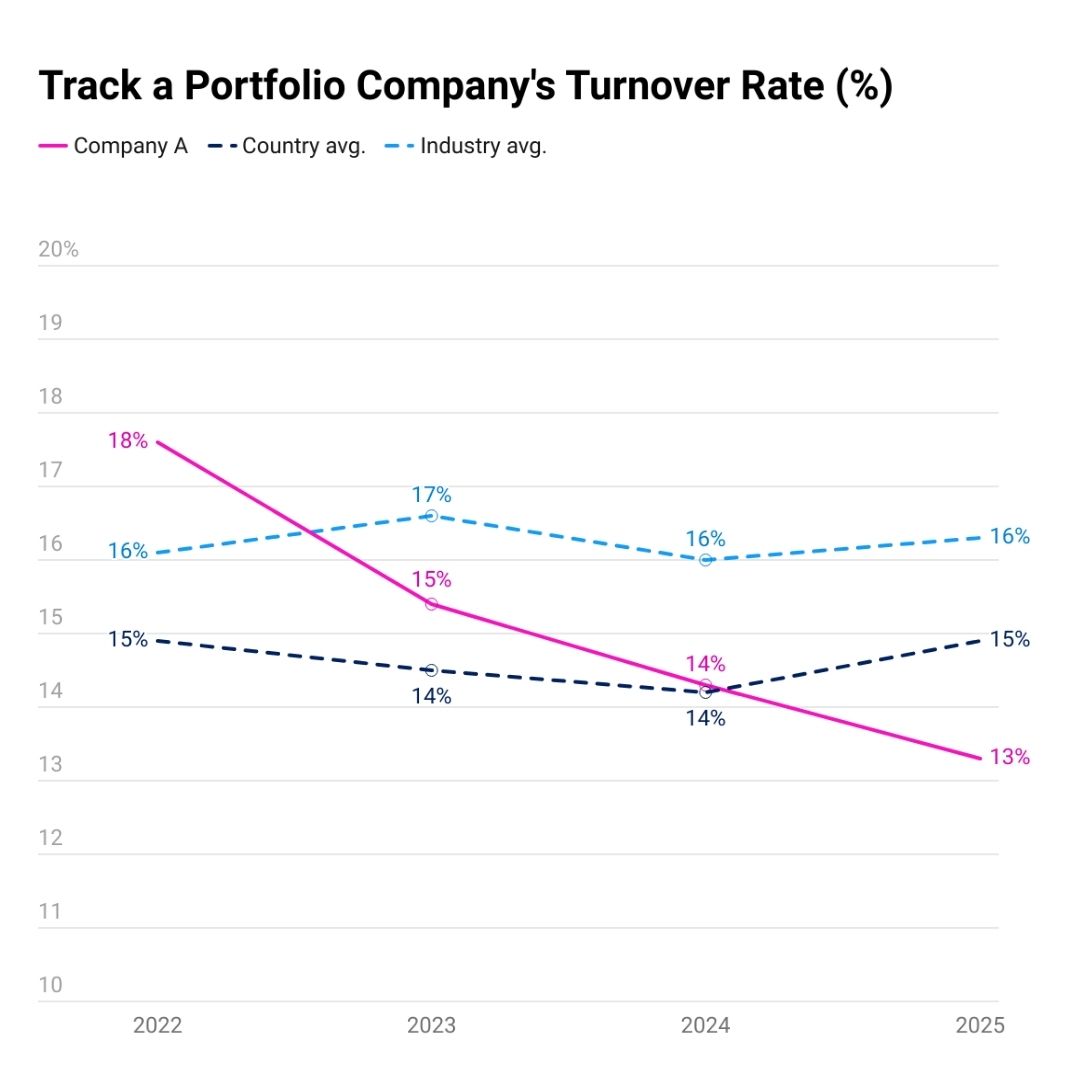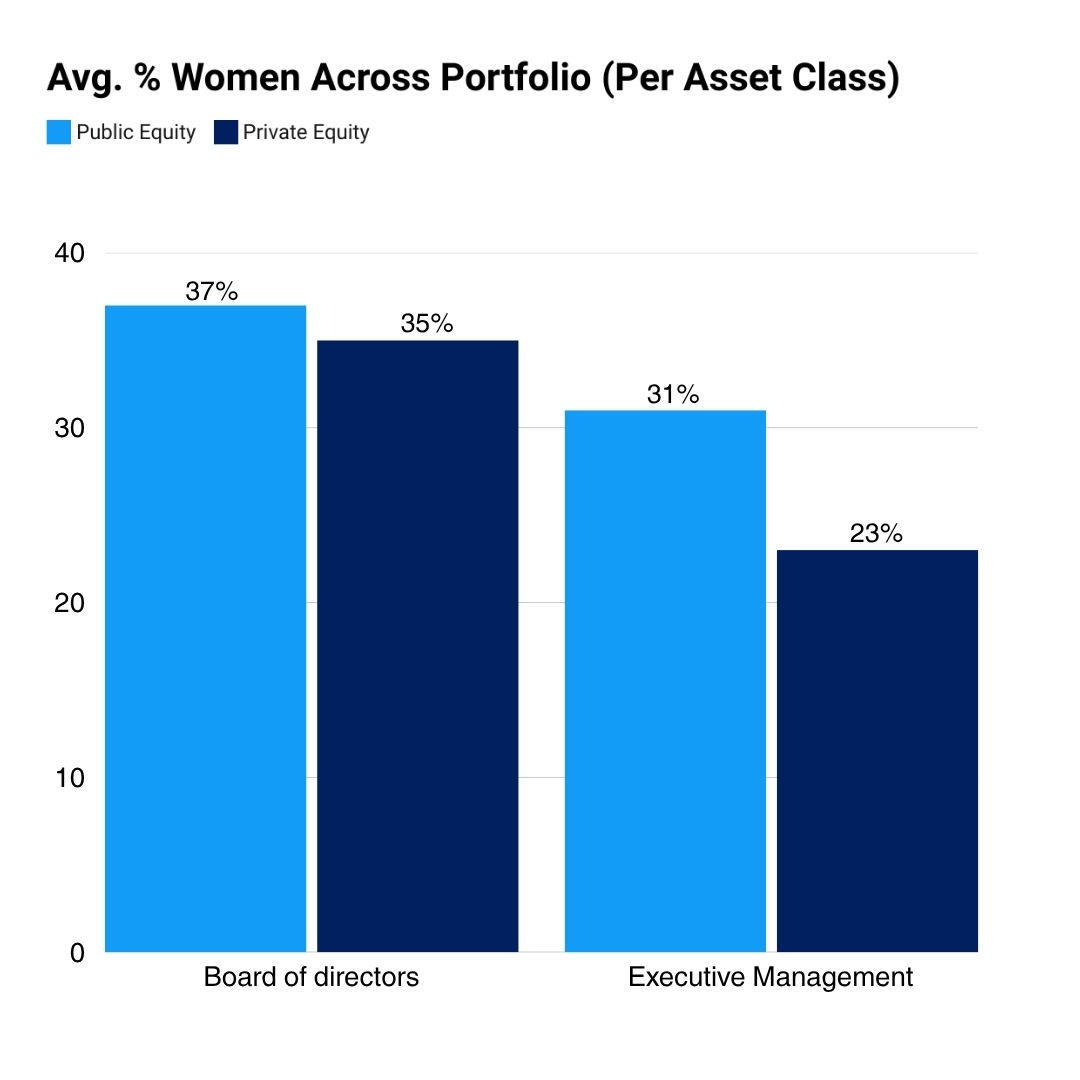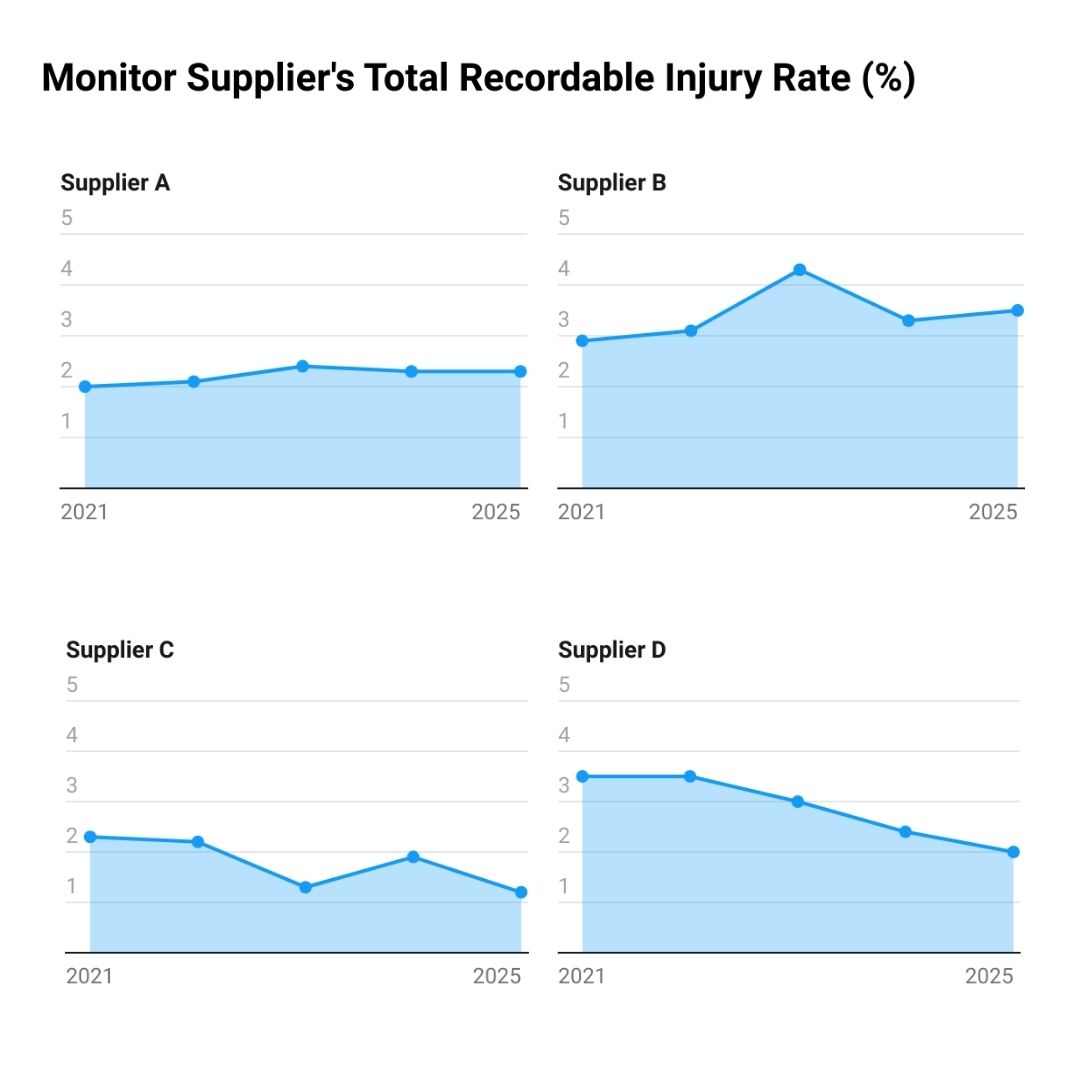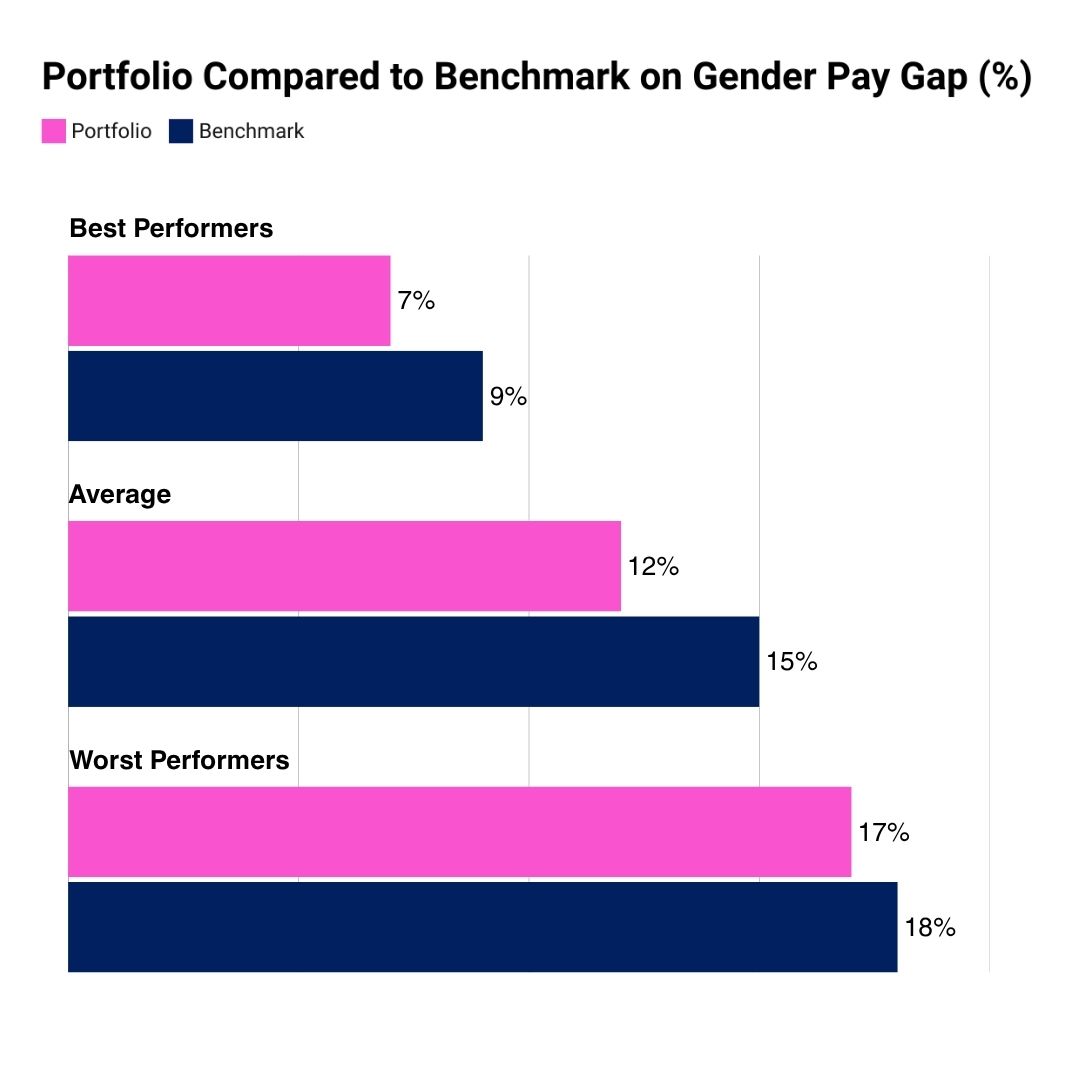Turning employee data into action
For a forward-looking view into workforce stability, Denominator monitors data such as retention, tenure, employee sentiment, compensation, career opportunities, and leadership approval. These metrics enable investors to detect risks, guide stewardship and voting strategies, and help companies benchmark against peers to strengthen operational efficiency and risks.
For example, when a stewardship lead noticed rising turnover trends across the portfolio, sustained engagement with company management encouraged corrective action. Gradually, the worst performers reduced turnover while leaders strengthened further.
Benchmarking leadership
For an overview of company composition, Denominator provides diversity data across gender, age, nationality, education, and disability. Investors and companies use these insights to benchmark representation, detect gaps, and align strategies with ESG requirements, supporting portfolio construction, stewardship, and regulatory compliance.
As an illustration, a portfolio manager reviews gender diversity in public and private companies, focusing on board and executive teams. Applying a 30% threshold for women in leadership, they select qualifying firms to build a portfolio that aligns with responsible investment practices and meets client expectations.
From risk to resilience
For a comprehensive view of workforce well-being, Denominator tracks workplace policies, incident rates, and preventive measures across industries. These insights help investors benchmark performance, monitor risks, and engage companies in proactive risk management.
In a recent case, an investor identified a company with injury rates (TRIR) above the industry average. The analysis supported stewardship discussions, prompting new safety policies and leading to a measurable reduction in incident rates over time.
Tracking workforce sustainability
Denominator’s dataset covers wages, unionization, remote work, living wage commitments, worker rights, and grievance mechanisms. These indicators help investors assess portfolio risks, benchmark practices, and ensure compliance.
As an illustration, when a stewardship lead analyzed gender pay gaps across companies, the findings revealed disparities that guided engagement with management. As firms implemented corrective measures, pay equity improved, employee satisfaction strengthened, and workforce resilience grew.
Assessing human rights
Denominator’s dataset tracks human rights policies, risks, and allegations not only within a company’s direct operations and supply chain, but also across lower-tier suppliers. This visibility helps companies and investors evaluate due diligence, mitigate adverse impacts, and reduce legal, reputational, and financial risks.
As a case, when a sustainable supply chain manager reviews exposure to human rights risks across suppliers, the analysis highlights allegations ranging from forced labor to breaches of OECD and UNGC principles. These findings inform supplier engagement, stricter due diligence processes, and targeted actions to strengthen responsible sourcing practices.





